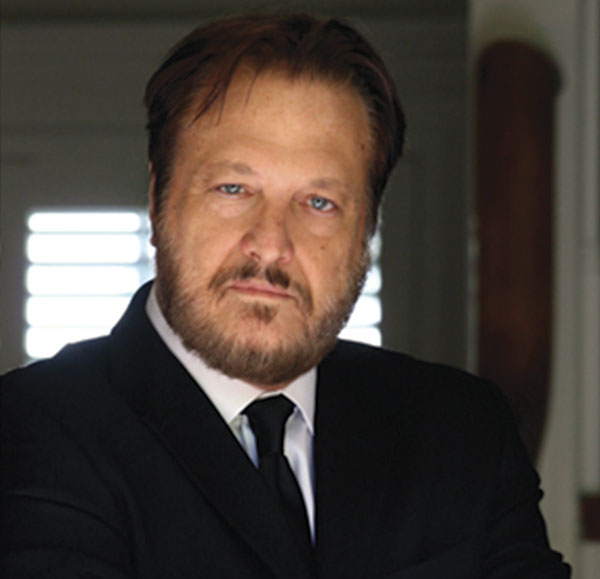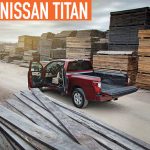JEFF ROBINSON
There is no denying the serious changes needed to improve the country’s infrastructure. Jeff Robinson, senior director of the 21st Century Transportation Campaign at US PIRG, shares his insight on a few solutions to the problems related to the vocational, day-use work truck industry. Bringing more than 25 years of experience in issue advocacy, civic engagement, and grassroots political action, Jeff joined the staff of US PIRG after serving as political director of Every Voice, a national campaign finance reform organization.
MWS: WITH RESPECT TO THE TRANSPORTATION INDUSTRY, WHAT CHANGES OR SOLUTIONS NEED TO BE MADE TO THE VOCATIONAL WORK TRUCK SEGMENT?
ROBINSON:
We need to think of our transportation network as a system. Passenger vehicles, mass transit, freight—including the vocational work truck segment—all need to work together in order to ensure an efficient and well-run system. The vocational work truck segment will be part of any solution that reduces congestion around our major urban areas. This will likely need to include sizing and technology changes, traffic and route management, and the adoption of alternative fuels.
MWS: WILL THAT INCLUDE ELECTRIC VEHICLES, DRONES FOR LAST MILE DELIVERY, AND IF SO, WHAT WOULD NEED TO BE DONE TO MAKE THAT HAPPEN? WHAT OTHER SOLUTIONS COME TO MIND?
ROBINSON:
Electric vehicles are without question part of the solution. Electric vehicles have no tailpipe emissions, drastically reducing overall emissions from trucks on the road, potentially providing benefits no fossil-fuel technology can match. In order to facilitate the transition to electric vehicles, both in the work truck segment and in the transportation system as a whole, we need to build up the infrastructure necessary to support electric vehicles on a large scale. That’s going to involve collaboration between state and local governments, utilities, as well as private entities. We need to ensure electric grids are prepared, utilities offer good time-of-use rates to encourage off-peak charging, and we’re providing a sufficient network of on-route, public fast-charging stations.
A great place to start for all states of the county would be to use the maximum allowable amount of the money they are receiving from the Volkswagen “dieselgate” settlement to purchase fast-charging stations along highways. The more charging stations are like gas stations, the more likely people and companies are to transition to electric vehicles. Electric vehicles need to be able to make long trips as well as short ones, and an extensive network of public charging stations is a great way to facilitate that. Every state in the country is receiving money from the Volkswagen settlement, ranging from around $8 million in Hawaii to more than $400 million in California. This money represents a golden opportunity to place a down payment on the transition to an electrified transportation system.
MWS: IN YOUR OPINION, WHAT IS THE RIGHT PATH FOR MOVING THE VOCATIONAL WORK TRUCK INDUSTRY TO BECOME A POSITIVE FACTOR TO ENHANCE OUR QUALITY OF LIFE IN CITIES AND TOWNS?
ROBINSON:
The path forward has to be one where the work truck industry views itself as part of the overall transportation system. What is good for the system is good for each part. Investing in mass transit is good for the work truck segment because it reduces congestion, opens up our roads, and makes for more efficient movement of goods.
And, any path forward has to reckon with the reality that the transportation system accounts for more global warming emissions than any other economic sector. This has contributed to poor air and water quality throughout the country, heightened levels of asthma, heart and lung disease around major roads and transportation centers, and has accelerated the devastating effects of climate change.
Every part of the transportation system needs to innovate and adapt in order to reduce its carbon footprint, and help ensure a healthier and more environmentally sustainable future.
MWS: ARE THERE ANY OTHER THOUGHTS YOU HAVE ON THE VOCATIONAL WORK TRUCK SEGMENT AS IT RELATES TO 21ST CENTURY SOLUTIONS?
ROBINSON:
The vocational work truck segment can be an important part of an improved transportation system. Taking the lead on alternative fuel technology will go a long way toward both reducing emissions and demonstrating that electric vehicles are a feasible option for people.
MWS: CLOSING THOUGHTS?
ROBINSON:
We are at a pivotal moment in time for our transportation infrastructure. Our current systems are aging and falling into disrepair. At the same time, a lot of new technologies are emerging—from alternative fuels, to self-driving vehicles, to drones. All of these can potentially play a role in our transportation future, but we need to ensure that they don’t contribute to growing vehicles miles traveled, worsening congestion, and dangerous emissions. It is important that we are thoughtful about the way we plan for our transportation future and that we think about how all segments of the transportation system can work together to better quality of life and improve our communities.
FOR MORE INFORMATION
Prior to US PIRG, Jeff Robinson served as the National Field Director of Social Security Works to protect and defend Social Security and Medicare. Find out more about US PIRG, visit www.uspirg.org.
_______________________________________________________________________
MODERN WORKTRUCK SOLUTIONS: FEBRUARY 2018 ISSUE
Did you enjoy this article?
Subscribe to the FREE Digital Edition of Modern WorkTruck Solutions magazine.
![]()




